Throughout the 1950’s and 60’s, William Castle produced and directed a series of horror films featuring some nifty audience-participation gimmicks. Castle treated moviegoers to buzzing seats, flying skeletons, luminescent ghosts and mock life insurance policies, and they loved every minute of it. In the documentary Spine Tingler! The William Castle Story, audiences are served up a different kind of treat: a rags-to-riches tale about one of the last great American showmen, a master of self-promotion and exploitation who, privately, was plagued by a fear of failure and a desperate desire to be respected among his peers.
Castle’s first breakout film was Macabre in 1958, an opus where each viewer was offered “insurance” against “ death by fright”. Castle went on to make the horror flicks as House on the Haunted Hill, the Tingler, 13 Ghosts, Homicidal, Mr. Sardonicus, and Strait-Jacket. He achieved commercial success with these low-budget films, carving a niche in Hollywood before skyrocketing budgets, megaplexes and corporate control sunk their teeth into the business. But it was his production of Rosemary’s Baby, directed by Roman Polanski, that affirmed his success as a film artist.
Spine Tingler! traces how an obscure director-for-hire reinvented himself as a pop-culture icon. From Castle’s first job as Bela Lugosi’s assistant to butting heads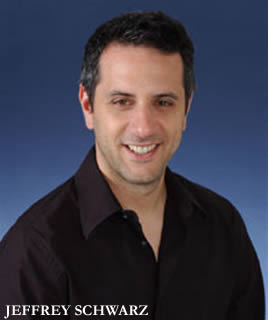 with Robert Evans, this eye-popping tale is told through revealing interviews with daughter Terry Castle and his associates. Spine Tingler! brings back those days when movies were pure fun and spine tingling excitement, when a producer could ride on a “smile and a shoeshine,” and when ballyhoo was as American as apple pie. William Castle’s story is an inspiration to dreamers everywhere, and is ably honored by this affectionate portrait of both the man and the showman.
with Robert Evans, this eye-popping tale is told through revealing interviews with daughter Terry Castle and his associates. Spine Tingler! brings back those days when movies were pure fun and spine tingling excitement, when a producer could ride on a “smile and a shoeshine,” and when ballyhoo was as American as apple pie. William Castle’s story is an inspiration to dreamers everywhere, and is ably honored by this affectionate portrait of both the man and the showman.
Jeffrey Schwarz director and producer of Spine Tingler! The William Castle Story has produced dozens of “behind the scenes” documentaries, including You Can’t Stop the Beat: The Long Journey of Hairspray, No Day But Today: The Story of Rent, Inside of the Labyrinth: The Making of The Silence of the Lambs, and Mysteries of Love, profiling David Lynch’s masterpiece Blue Velvet. Jeffrey’s documentary, People Like Us: Making Philadelphia, premiered at the 2003 San Francisco Lesbian and Gay Film Festival. He was executive producer of Whether You Like It Or Not: The Story of Hedwig, which has enjoyed a life beyond DVD at film festivals around the world.
Cinema Without Borders: Please tell us a little bit about your film.
Jeffrey Schwarz: My name is Jeffrey Schwarz. The documentary that I produced and directed is called Spine Tingler! The William Castle Story. It is a feature length documentary about the last great American showman in movies. He was a movie director in the fifties and sixties and he made horror films. All his horror films were low budget films and didn’t have huge stars. He had to find very interesting and unique ways to get people talking and get them interested in coming to see the movies. To get people to come see his films he came up with publicity gimmicks 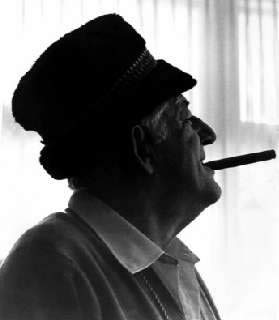 to go along with each film. The first publicity gimmick he did was for a movie he did called Macabre in 1958. He insured the audience against death by fright. He took out a real insurance policy. If the audience was so scared that they would drop dead during the movie, their beneficiary would be paid. That publicity gimmick made a $100,000 dollar movie with no stars into a $2 million dollar success. It was the gimmick that got the public interested and he figured that he was on to something. The next film he did he had a plastic skeleton that would come out on a wire floating over the audience. After that he installed electric buzzers under the audiences’ seats that would go off during the film and give the audience a shock. He had a film where you can vote on the end of the movie if you want the villain to live or die. He had all these gimmicks and turned himself into a brand name in horror movies. He was doing this at the same time Hitchcock was doing his films. He had a friendly rivalry with Alfred Hitchcock. I would say he was as famous as Hitchcock in this short period of time in America and also around the world. He would show his films in different countries, and had a worldwide following. He later went onto produce Rosemary’s Baby that Roman Polanski directed. In the history of movies he is a very interesting colorful character.
to go along with each film. The first publicity gimmick he did was for a movie he did called Macabre in 1958. He insured the audience against death by fright. He took out a real insurance policy. If the audience was so scared that they would drop dead during the movie, their beneficiary would be paid. That publicity gimmick made a $100,000 dollar movie with no stars into a $2 million dollar success. It was the gimmick that got the public interested and he figured that he was on to something. The next film he did he had a plastic skeleton that would come out on a wire floating over the audience. After that he installed electric buzzers under the audiences’ seats that would go off during the film and give the audience a shock. He had a film where you can vote on the end of the movie if you want the villain to live or die. He had all these gimmicks and turned himself into a brand name in horror movies. He was doing this at the same time Hitchcock was doing his films. He had a friendly rivalry with Alfred Hitchcock. I would say he was as famous as Hitchcock in this short period of time in America and also around the world. He would show his films in different countries, and had a worldwide following. He later went onto produce Rosemary’s Baby that Roman Polanski directed. In the history of movies he is a very interesting colorful character.
CWB: How challenging was it making this project?
JS: It was challenging in that it was independently made. It was a challenge at first to find the right people to talk about the film, and to convince them to be in the film; to get them to trust me that the story would be in good hands, particularly the family. His daughter Terry Castle is in the film. She had gotten a lot of requests over the years for interviews or documentaries. I somehow was able to get her to trust me to tell her family story and her father’ story. I would say the biggest challenge was to secure that trust. Once that was done the next challenge was finding the people to talk about Will’s life; like John Waters, Joe Dante, Marcel Marceau, John Landis, and Diane Baker, a lot of really incredible people. It was a lengthy process. The first interview was shot in 1999 and we continued to film interviews until 2005, and then edited for the last year or two.
CWB: How did you decide on the visual style of the film?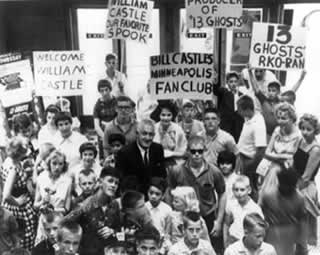
JS: Well I wanted to make a film that would be very lively visually, and not just rely on talking head interviews. There are a lot of talking head interviews but we try to give the film its own unique visual look in graphics and animation. We had an incredible graphic designer named Grant Nellessen and he came up with a very appropriate style for the film. It was in a way “low-tech” like his films and gimmicks were, and he was able to bring photographs and posters and create graphics that brought the story to life. It made the film very visually engaging.
CWB: Does the film have a theatrical release?
JS: Well this is our world premiere so we haven’t secured a theatrical release yet but I am very encouraged because William Castle has fans all over the country and world. Baby boomers that grew up around the time that he made his films are fans, as well as a new generation that is very interested in horror movies, and also very uniquely American characters. I am very optimistic about a theatrical release but right now we are going to make the festival. 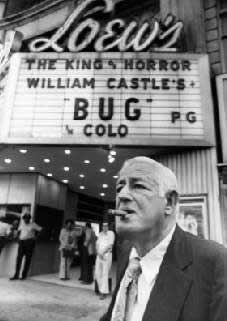 CWB: What motivated you to become a filmmaker?
CWB: What motivated you to become a filmmaker?
JS: That’s a very good question. I think all filmmakers will tell you that they want to share things that they are passionate and excited about. When I find a subject that hasn’t been shared with the public, like with William Castle, I want to bring him back to life. My motivation is to share interesting unique stories about outsider icons, people who are not necessarily accepted by the mainstream, but are able to parley that outsider status into becoming icons.
CWB: Do you remember the very first film that inspired you to think about cinema?
JS: That’s a very good question. You are making me think. One of the very first films I remember seeing is Mel Brook’s Young Frankenstein. At the time I saw it I didn’t realize it was a parody of monster films, of the James Whale films. My father told me it was going to be a scary movie, and I got there and it was a comedy. I think it came out in 1974’ or 75’ so I was pretty young. That movie made a big impression on me because it had a very unique blend of comedy and horror. I think for some reason that movie sticks in my head as an influence.
CWB: Are there any filmmakers that you admire?
JS: Currently I admire the Coen Brothers. I enjoy Morgan Spurlock films and TV shows. I enjoy Jonathan Demy’s films as well. I am inspired by filmmakers that are able to deal with narrative and documentary films and sometimes blend the two. There are so many it is hard to pick just one. I am very drawn to Alfred Hitchcock in particular. I can see his films over and over again and always see something new. 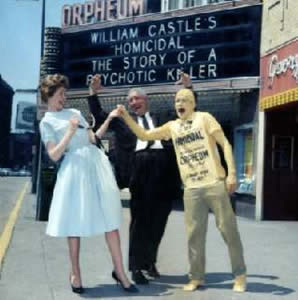
CWB: What will be your next project?
JS: My next project is another documentary about a 1970’s adult film star named Jack Wrangler. He was a kid who grew up in Beverly Hills in a show business family. He started to have a pretty normal show biz career but it wasn’t working out for him as quickly as he wanted. So, he took a detour into the world of porno and became a porno star.
CWB: What do you think about the state of documentary filmmaking at this time in the U.S.?
JS: There is no better time to be a documentary filmmaker. Audiences are more receptive now than ever. This doesn’t apply to my film, but a lot of the documentaries that have gotten a lot of notoriety in America are issue-oriented films. I think a lot of people are disappointed in our mainstream media. They aren’t telling the truth and they aren’t exploring issues that are important to people. I think audiences are turning to documentaries because they feel they are getting an honest point of view.
CWB: Are you ever going to make a horror film?
JS: Yes. I would like to make horror films in the future. If I do make them they will probably be low budget. I will probably have to come up with some gimmicks just like William Castle did to get people into the theatre.

